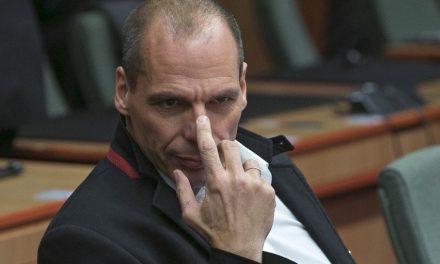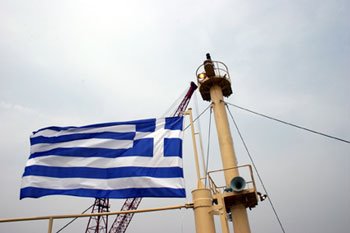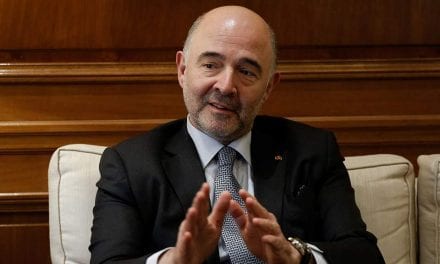By COSTAS PARIS And TERENCE ROTH, Wall Street Journal
LONDON—Deadlocked Greek debt-rescheduling negotiations threaten to delay key talks for a critical bailout package set for early next week, with officials warning of a rising risk of default unless a breakthrough comes soon.
A senior delegation from the International Monetary Fund, the European Union and the European Central Bank are to arrive in Athens Friday to discuss Greece’s second rescue program. Equally important is a meeting of European finance ministers in Brussels next Monday to formulate their portion of the next Greek bailout, set in October at €130 billion ($164.8 billion).
Both sets of talks hinge on Greece and its private-sector creditors reaching an initial agreement this week to reduce the country’s debt to them by half. Talks were suspended Friday after disagreement over the rates of interest Athens would pay on Greek debt holdings. Attention is now focused on overtures to resume negotiations as early as Wednesday, according to Greek officials.
The setback was accompanied Friday by a decision by the Standard & Poor’s credit rating company to downgrade nine euro-zone countries, including France. The downgrades were anticipated, but taken in tandem with the stalled debt talks have hampered Europe’s efforts to defuse its government debt crisis and safeguard the euro.
Talks between the Greek government and the Institute of International Finance, which represents the private creditors, broke down on Friday over the coupon on longer-term new bonds that Greece will issue in exchange for the old bonds held by the banks. The private sector wouldn’t accept a coupon of 4% on the new bonds, much lower than expected.
“Time is running very short,” said one official involved in talks with private-sector creditors. “If we don’t get an agreement, there won’t be a new loan and Greece won’t be able to pay back its bond redemptions in March.”
Greece remains the immediate threat to the 17-country currency bloc. The country has to pay back €14.4 billion in maturing bonds on March 20. Unable to tap the bond market since 2010, it fully depends on the bailout loan to stay above water.
EU policy makers have warned that a Greek default could shift focus to the fiscal frailty of Italy and Spain, pushing their borrowing costs to unsustainable levels. Global leaders have repeatedly said there isn’t enough money available to bail out countries of that size.
The goal of the talks with the private sector is to slice €103 billion from the Greek government’s €350 billion in debt without any signs of coercion. An agreement in principle would set up a formal debt offer during the week of Feb. 6-10, with the final debt exchange expected to be completed by the end of February.
The sticking point remains the interest rate stitched to the bond swap. Greece says it can’t afford to pay more than a 4.5% average coupon on the new bonds, while sovereign creditors such as Germany and the IMF want below 4% to make sure Greece can afford it and to avoid future shortfalls. The IIF, however, wants more than 5%.
Participants in the talks said the atmosphere in the meeting room on Friday became tense as private-sector creditors resisted the lower coupon.
“Phones have been ringing non-stop in Washington [the base of the IMF and IIF], Athens, Brussels, Berlin and Paris to get the sides back to the table on Wednesday,” said one person familiar with the matter.
Greek Prime Minister Lucas Papademos said in an interview with CNBC Monday that he expects the two sides to reach a mutually acceptable deal.
“The discussions, which are ongoing, have I think helped us to reach a point, which is close to an agreement, but some further reflection is necessary on how to put all the elements together,” he said.
Greece this week is sending its top economic adviser, George Zanias, and the head of the Public Debt Management Agency, Petros Christodoulou, to Washington to discuss the issue with the IMF.
A lingering problem is that some investors who hold insurance against a Greek default in the form of credit default swaps are resisting participation in a debt writedown. However, Greek officials believe that if the IIF agrees and a “critical mass” of around 68% of investors voluntarily go along, then this will trigger so-called collective action clauses that will bind the remaining investors into the deal.



















